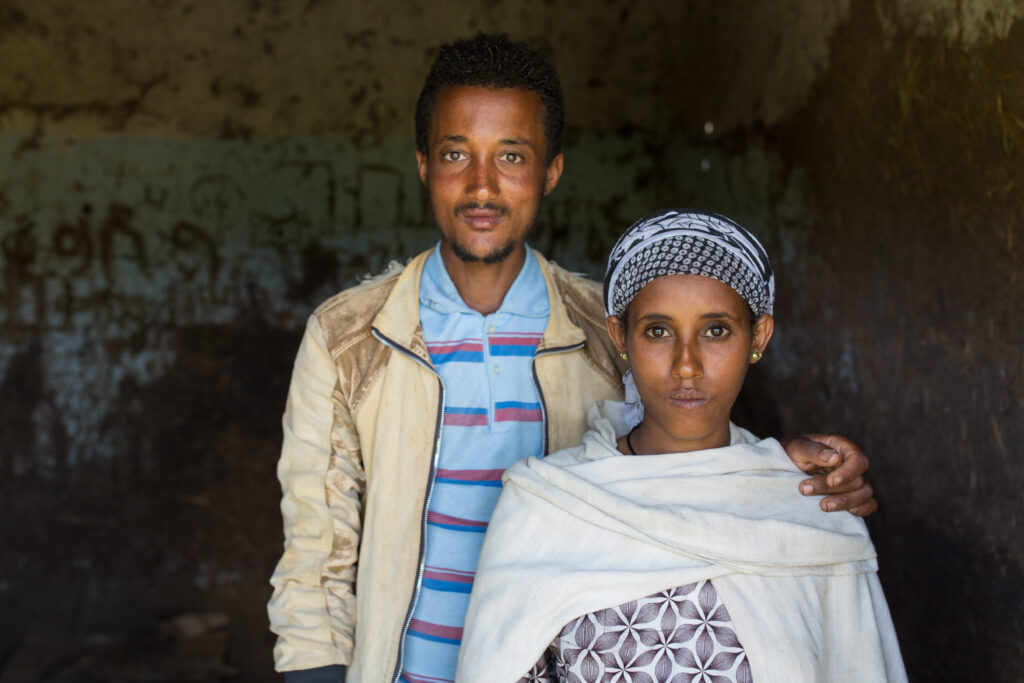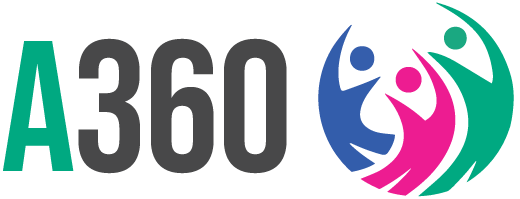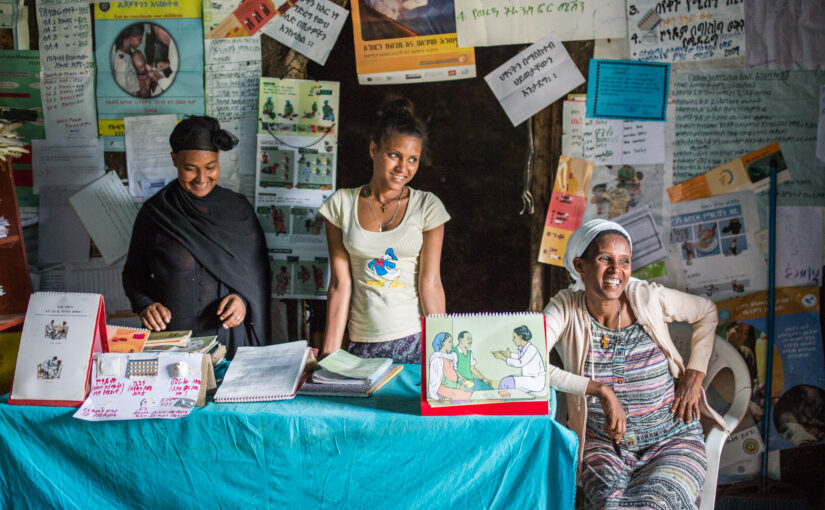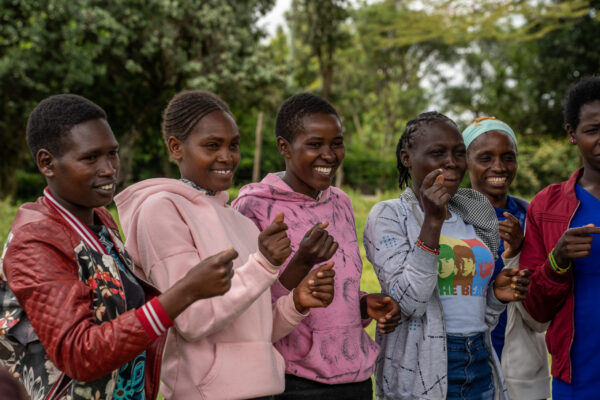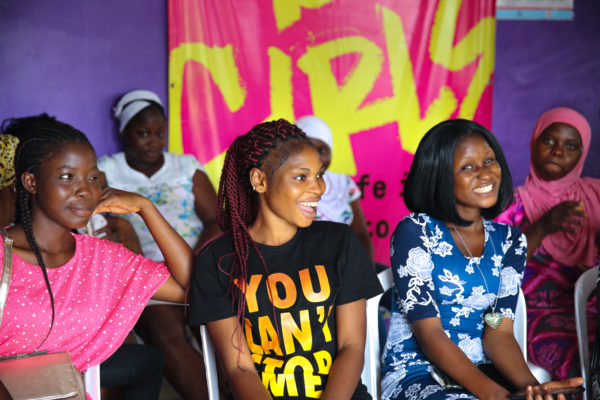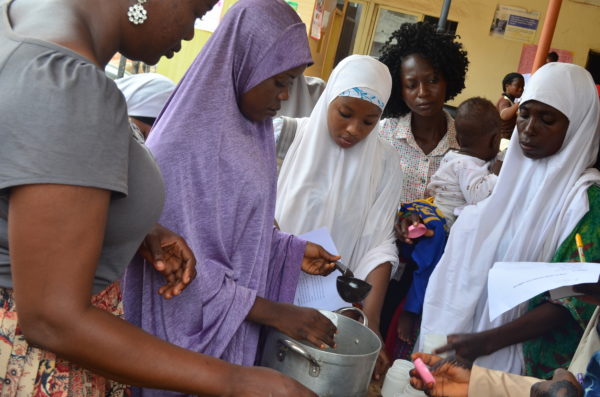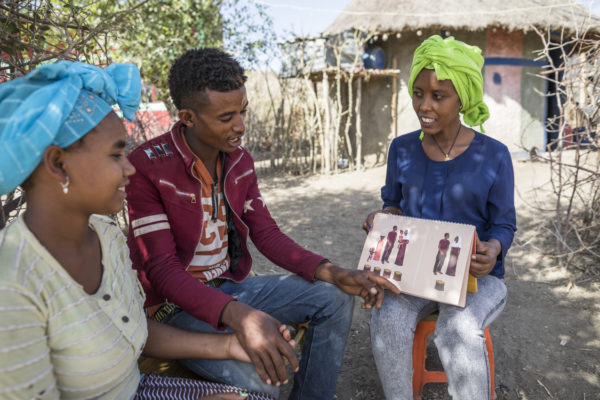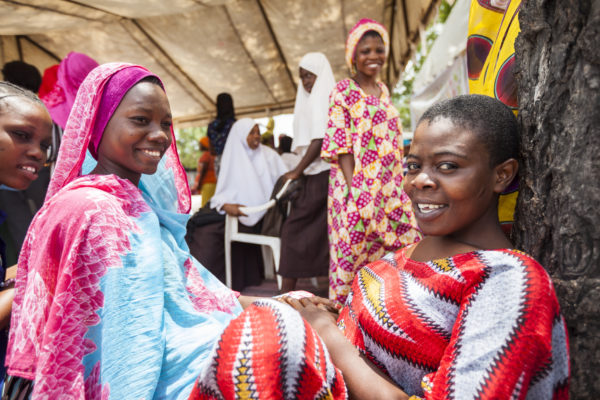By Matthew Wilson, A360 Project Director, PSI
The end of Adolescents 360 (A360)’s first phase presents an opportune time for us to reflect on where we’ve come – and where we’re headed, next. What have we learned from the journey and how is it shaping our approach to the next phase?
A360’s work to date is impact to celebrate, and still, we know this is merely a drop in the ocean. To scale and sustain the progress made, girls need government health systems to integrate this girl-centered approach into policy and practice.
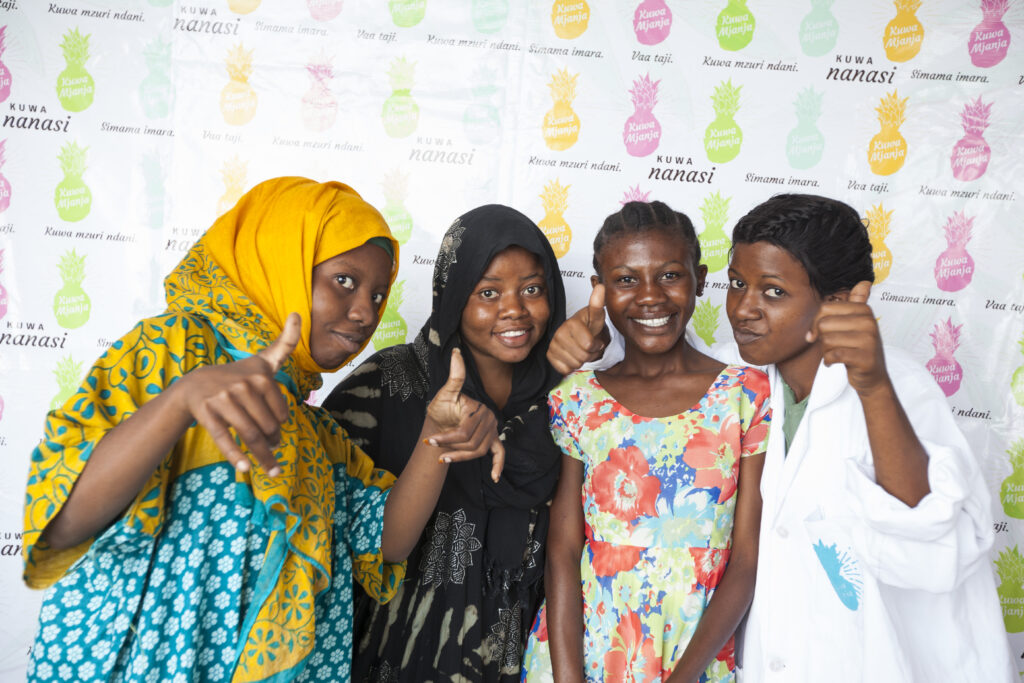
Learning #1. It always seems impossible until it’s done.Nelson Mandela |
A360 started with equal measures of ambition, ambiguity and anxiety. Twice during the life of the project, we – alongside our donors – decreased our goal of reaching 360,000 adopters as we felt them unrealistic. Yet in Sept. 2020, we surpassed 410,000 adopters.
My takeaway? If we hire and develop talent, build a human-centered culture and trust our teams to iterate, fail fast, learn and adapt, we stand a strong chance of getting to where we need to go. We should also be careful not to jump to conclusions prematurely.
Learning #2. Sometimes when things are falling apart, they may actually be falling into place.Marilyn Monroe |
There have been times when three of A360’s four interventions were in real jeopardy. The pilot phases had not met expectations and the initial prognosis for scaling left us discouraged. But the teams made course corrections, navigated their way through these crises and emerged with greater resolve and strategic clarity.
Though the program’s outcome evaluation has been disrupted by COVID-19 and will not be concluded until the end of 2021, routine monitoring data, the process evaluation and an independent ethnographic study all speak to the program’s successes. As does our stakeholders’ support to amplify the program’s impact, influence and sustainability. Without those crises we may have never achieved what we have.
This applies beyond A360. Amid the pandemic, it is easy to feel unsettled. But disruption can have upsides. As I’ve learned in A360 — there’s value in seeking these upsides out.
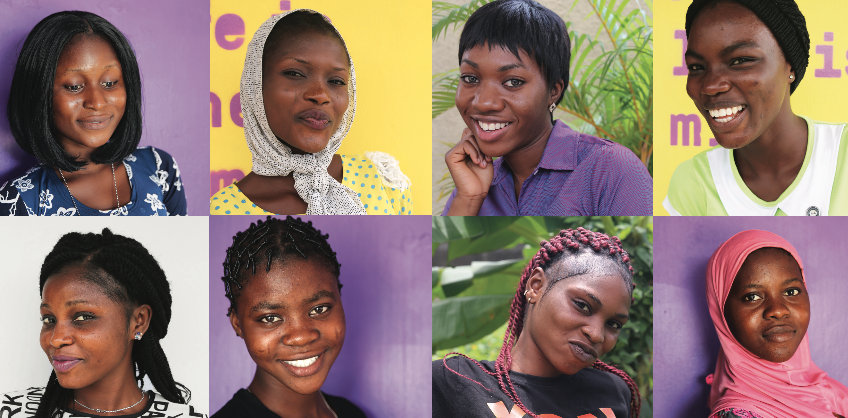
Learning #3. Whatever is good to know is difficult to learn.Greek proverb |
How we work is equally important and part of what differentiates A360 from many projects.
Human-centered design, adaptive implementation and meaningful youth engagement have all shaped and refined the strategy and culture that have made A360 a success.
Conventionally, a strategy, work plan, monitoring and evaluation system and budget would be pre-determined, cascaded down through hierarchical structures where power was vested in the most educated and experienced, and implemented rigidly. Instead, A360 teams have been asked to embrace ambiguity and fluidity, to elicit diverse perspectives, entrust young people, devolve power and continuously iterate.
We should not underestimate how challenging and significant this shift has been.
Learning #4. Quality is the best business plan.John Lasseter, Disney |
One of A360’s most important course corrections included shifting the focus from cost-efficiency to quality. Cost-efficiency had been conflated with cost-effectiveness. The cost-efficiency metric of “cost-per-adopter” drove decision-making. While this helped us increase the number of girls who voluntarily adopt modern contraception, we needed to place an equal emphasis on adoption and continuation if we wanted to deliver effective and sustainable results.
The global evidence base on what reduces discontinuation when in need is weak. But there are promising practices, including: fostering an enabling environment for girls to exercise their choice, ensuring girls have the information and widest range of contraceptive options to choose a method that best fits their needs, and establishing follow-up systems to support girls to manage side effects, switch methods or resupply. Arguably the bigger challenge is finding strategies that work at scale and can be integrated within government health systems in low resource settings. This is an important focus of A360 Amplify.
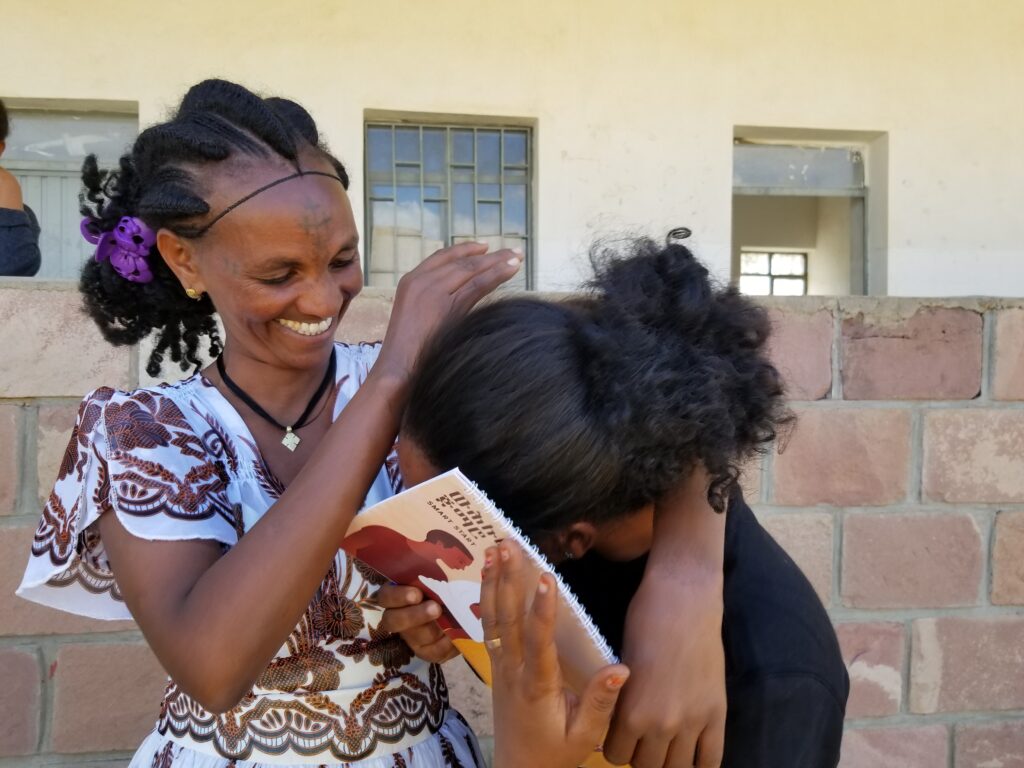
Learning #5. Collaboration is indeed the answer to many of today’s most pressing business challenges. But more isn’t always better.Harvard Business Review |
I pursued a role on A360 for several reasons, but the deciding factor was the confidence I had in the team. People make a project. And while that confidence has been unwavering since my start two-years ago, I, and the global team, have wrestled with what the Harvard Business Review calls “collaboration-overload.”
There was a strong collaborative culture within the team. Everyone was drawn into everything — either because they were asked to, they wanted to, or the complexity of the task required it. But our days were consumed by emails and meetings, leaving little time for individual tasks. Furthermore, the sheer breadth of the tasks in which each person was involved meant yet more productivity was lost switching from task to task. We have made progress tackling this, but it is complex.
It encompasses structure, clarity of roles, communication, devolving power, trust, prioritization, discipline and sometimes accepting ‘good’ over ‘perfect.’ We know we’re not alone as this is pervasive in many organizations today. We want to learn from others: how do you address collaboration-overload in pursuit of being ever more efficient and agile?
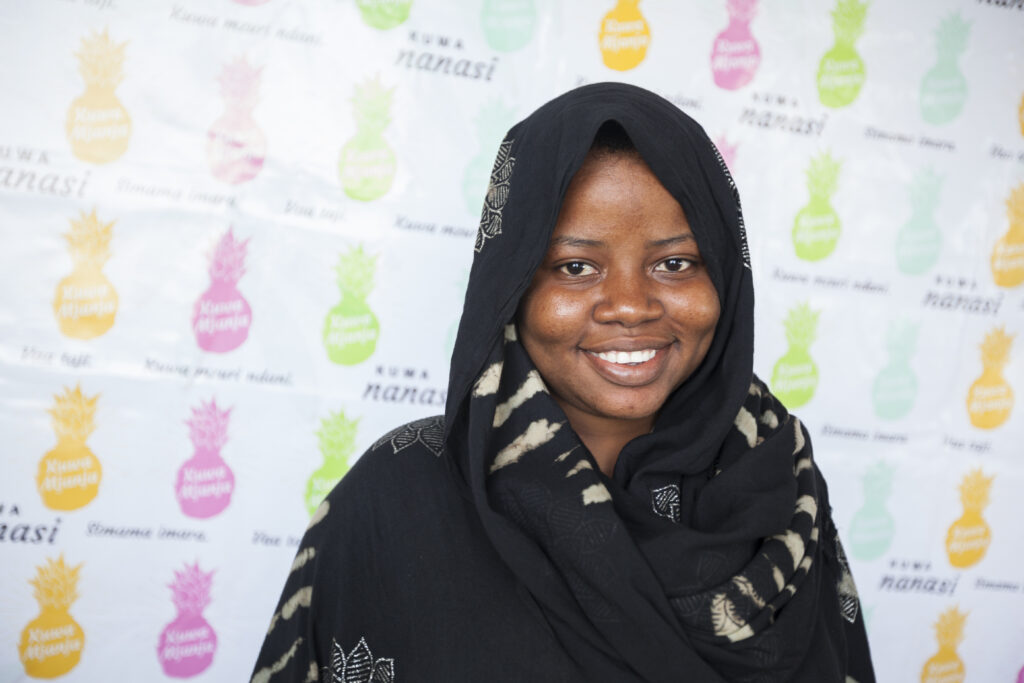
Learning #6. Anything related to young people requires their engagement and participation so that it can be successful.Kalkidan Zerihun, 22, A360 Young Designer, Ethiopia |
Meaningful youth engagement (MYE) has been central to A360’s success. Young people have been actively involved in the design phase, monitoring and interpretation of performance, adaptive implementation, external relations, and much more.
But as I write, A360’s young designers are holding a two-day, multi-country, closed door, conference to assess the extent to which they feel they have been meaningfully engaged during A360, document examples of the impact of meaningful engagement on program effectiveness, and identify opportunities to strengthen our MYE.
These three objectives are fundamentally important.
The first will crucially hold us to account. The second will help us move beyond the focus on whether youth have been meaningfully engaged that dominates the current dialogue. We want to look at what impact this MYE had on program effectiveness. The third recognizes that young people are not homogenous; the more representative the young people we engage are of the segments of adolescent girls A360 works with and for, the more effective our programming will be.
Learning #7. Development is visualized or portrayed as a Global South phenomenon…but in terms of how development is conceived, practiced and theorized, those are not the people that are at the very helm of determining what development is. And that is a travesty.Robtel Neajai Pailey, Academic, activist and author |
I am the first to admit that as a middle-aged, middle class, Western white man, I am probably the last person who should be running a project supporting adolescent girls in Sub-Saharan Africa. I feel fortunate and somewhat embarrassed.
I do not want this to be the case indefinitely. Under the next phase of A360, we have mapped out a vision for how we can pursue localization within the context of a global project, leveraging the benefits of both local and global talent. Central to this is elevating local leadership, decentralizing power and diversifying the global support team.
And as Stephanie Kimou of Population Works Africa says, that starts by having difficult conversations about privilege and power. It is a gradual process but a deliberate and time-bound one that can capitalize on the agility being a global project provides.
As a white Western man, I am not best placed to lead this conversation, but I am trying to create the space for those who are. Therefore, A360 has engaged thought leaders like Kimou to help us move forward.
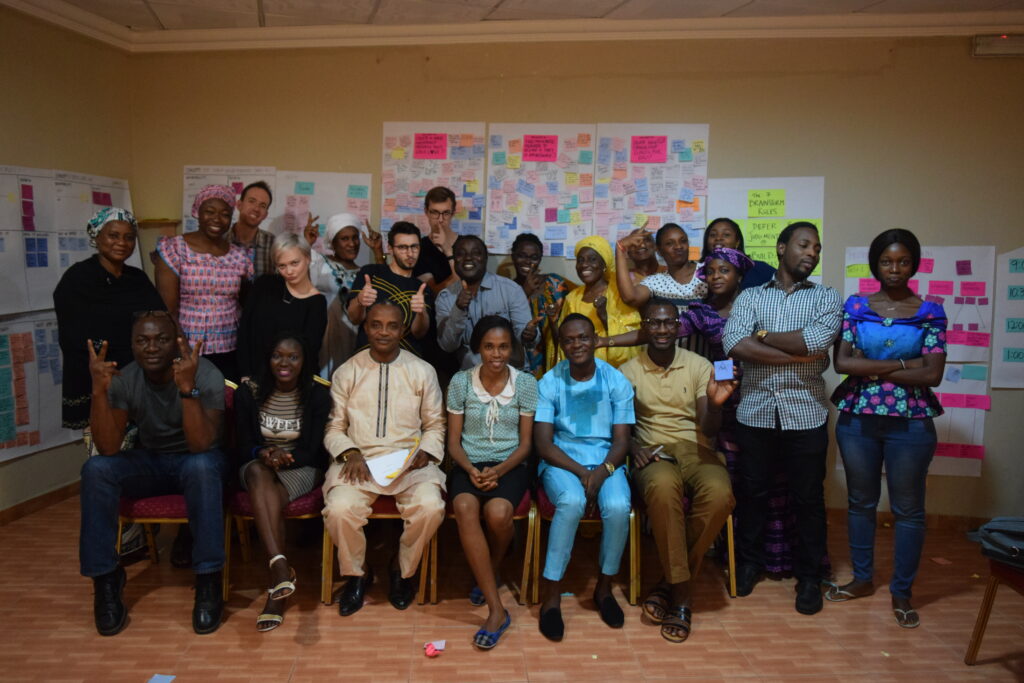
Learning #8. Dear non-profit and foundation professionals, you are each a unicorn.Vu Le, Unicorns Unite: How Non-Profits and Foundations Can Build EPIC Partnerships |
The unconventional book this quote is drawn from explores the dynamics between donors and implementers and outlines a vision for the future. It’s themes are very similar to those underlying feminist philanthropy. Dynamics we are often hesitant to talk about openly, but that sometimes constrain what we can achieve together.
A360’s donors have been catalytic. They have prompted us to dig deeper, think differently, explore new avenues, stretch ourselves, make connections, and learn from others — particularly when these donor representatives have experience as implementers in the field. These prompts add considerable value, value that often comes from the helicopter view they have as funders. We are immersed in our project, but they have a view of the sector we can benefit from. Likewise, their flexibility has allowed us to adapt and focus on making the right strategic choices rather than managing to rigid workplans and budget. And ultimately, they share the same vision, values and vested interest in the program’s success.
That is not to say there aren’t opportunities to strengthen the donor-implementer relationship. There are and we discuss these openly with our donors. So, we will continue to work on the relationship, seeking to understand each other better, testing ways of defining boundaries, and creating more space for reflection and learning.
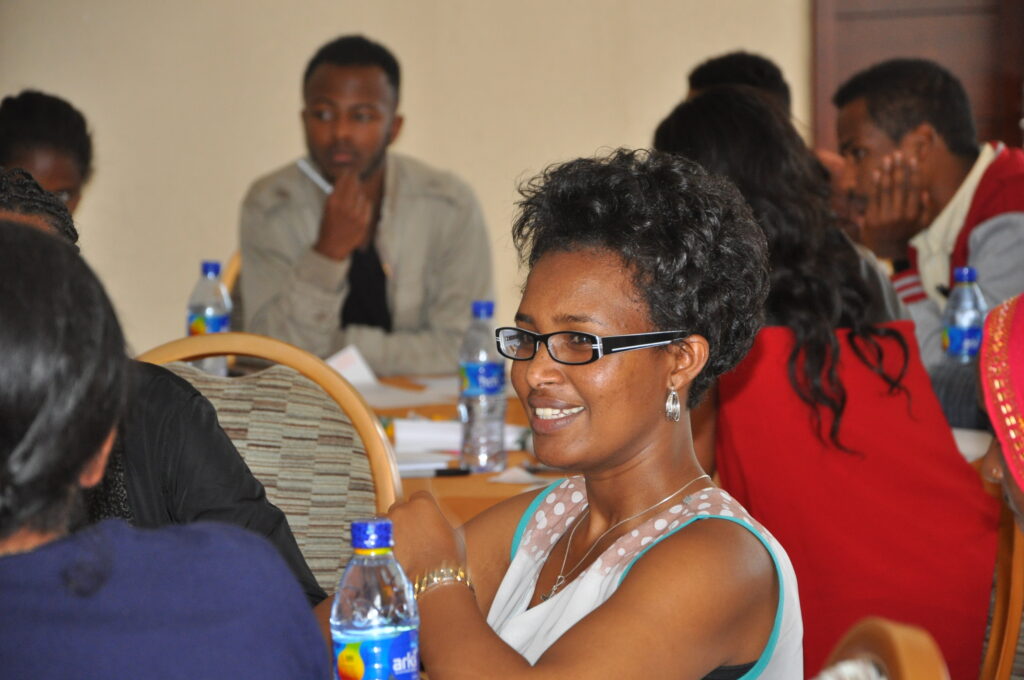
Learning #9. The times are urgent, let us slow down.Bayo Akomolafe of The Emergence Network quoting an African saying |
Implementers know only too well how easy it is to be “heads down,” consumed by the day-to-day demands of implementation. A360 has been extremely fortunate that thought leaders within the sector have volunteered their time to provide counsel. When we have sought this, it has been extremely helpful. Likewise, we have found considerable value in developing thought partnerships with other implementers.
But we have not always listened and learned enough from others. We need to create more time to be “heads up.” It is the exposure to other approaches and perspectives that sharpen our own thinking and open new possibilities.
Staying “heads up” also demands that we make more time to pause and reflect as a team, a challenge with the relentless pace of many projects. The importance of this, and the role it plays in improving quality and effectiveness, needs to be recognized and reflected in our key performance indicators (KPIs). It is not just a question of incorporating KPIs that relate to ‘heads up’ activities. The KPIs that drive the ‘heads down’ mentality need revising to create the space for these.
Time is finite.
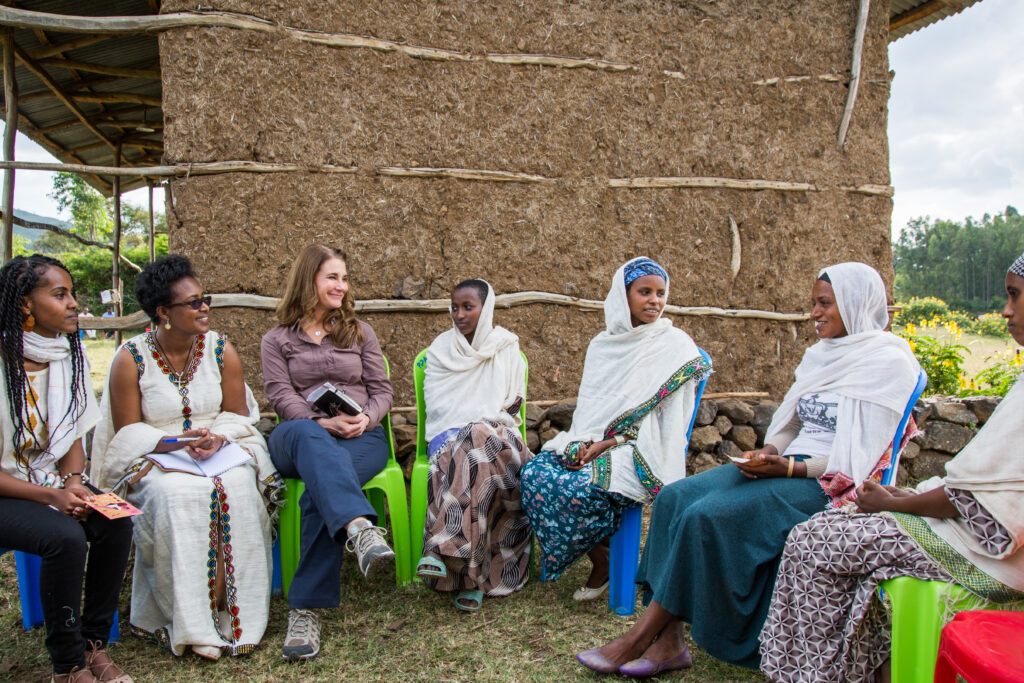
Learning #10. Know your trade-offs, rethink them, innovate around them, and thrive within them.Sarah Kaplan, Director of the Institute for Gender and the Economy, Professor and Author |
We’re going into the new phase of A360 with our eyes wide open to the strategic complexity, tensions and trade-offs that lie ahead. We’ll be working to improve the effectiveness of A360’s interventions and respond to adolescent girls’ holistic needs, then supporting governments to institutionalize A360’s interventions and ways of working. There will be tensions and trade-offs between the complexity of the intervention and the simplicity we need to institutionalize; between designing more intensive interventions and pursuing scale and sustainability; between maintaining fidelity and transferring ownership.
We don’t have all the answers to these, right now. We need people to walk with us. People who can help us wrestle with these strategic complexities, tensions and trade-offs, and problem solve, innovate and iterate.
In the words of Seth Godin, “If there were no trade-offs, there would be no interesting problems worth solving.”
